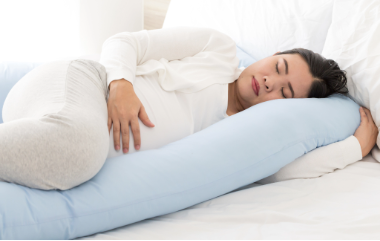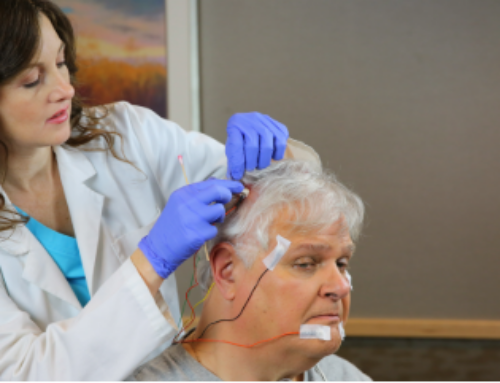Pregnancy affects many aspects of a woman’s body, including sleep. Hormonal fluctuations, physical transformations, and the inherent stresses of pregnancy can alter both the duration and quality of sleep. While most sleep disturbances are reversible post-delivery, some sleep changes may indicate underlying sleep disorders.
Sleep changes by trimester
During pregnancy, a woman’s body undergoes various changes that can disrupt sleep. In fact, according to one survey, 97% of pregnant women reported symptoms of disrupted sleep.
The first trimester may bring increased sleepiness, accompanied by disruptions caused by nausea, vomiting, backache and frequent urination.
However, many women experience improved sleep and daytime alertness in the second trimester. Yet, this period may also introduce new challenges, such as snoring, which, when accompanied by breathing pauses or daytime sleepiness, could signal obstructive sleep apnea — a condition linked to heightened risks of preeclampsia and gestational diabetes.
The third trimester can be the most challenging for sleep. Common causes of sleep disruption include fetal movements, increased urination, heartburn, positional discomfort, back pain, snoring and restless legs syndrome. Additionally, the likelihood of having insomnia increases in the third trimester, with research suggesting over 40% of pregnant women experience the sleep disorder.
Risk factors and sleep disorders
The risks of developing both obstructive sleep apnea and restless legs syndrome increase during pregnancy. Anxiety and hormonal fluctuations can contribute to insomnia, further complicating sleep patterns.
Gestational diabetes, characterized by elevated blood sugar levels, can develop during pregnancy. One study found women with gestational diabetes are nearly seven times more likely to have obstructive sleep apnea compared to other pregnant women.
Restless legs syndrome, a condition involving uncomfortable sensations in the legs and an irresistible urge to move them, affects around 20% of pregnant women, peaking in the third trimester. Iron deficiency is a common cause and this syndrome raises the risk of complications such as preeclampsia, gestational hypertension, Cesarean delivery and depressed mood.
Sleep problems during pregnancy may affect more than just the mother. One study found that infants born to mothers with sleep-disordered breathing — snoring, apnea, and other breathing difficulties during sleep — are more likely to develop complications such as jaundice, low blood sugar, seizures, or death during the newborn period. Sleep-disordered breathing occurs in an estimated 11 to 20% of pregnant women.
Tips for better sleep during pregnancy
Ensuring adequate sleep is crucial for both the mother’s physical and mental well-being. Follow healthy sleep habits, such as maintaining a consistent sleep schedule and limiting daytime naps, to navigate sleep challenges during pregnancy. Additionally, consider leg massages to alleviate cramps or restless legs sensations.
Next steps
If significant sleep disruptions occur during pregnancy, talk to an obstetrician or primary care professional. Tell your doctor if you begin to snore or have restless legs sensations during pregnancy, as these may indicate underlying sleep disorders that require attention.
Medical review by Seema Khosla, MD
Related:
- Restless legs syndrome and poor sleep in pregnant women
- Gestational diabetes increases risk of sleep apnea seven-fold
- Treating sleep-disordered breathing in pregnancy may improve fetal health
- Binge eating causes sleep issues during, after pregnancy
- Poor sleep in pregnant mothers linked to preterm deliveries





